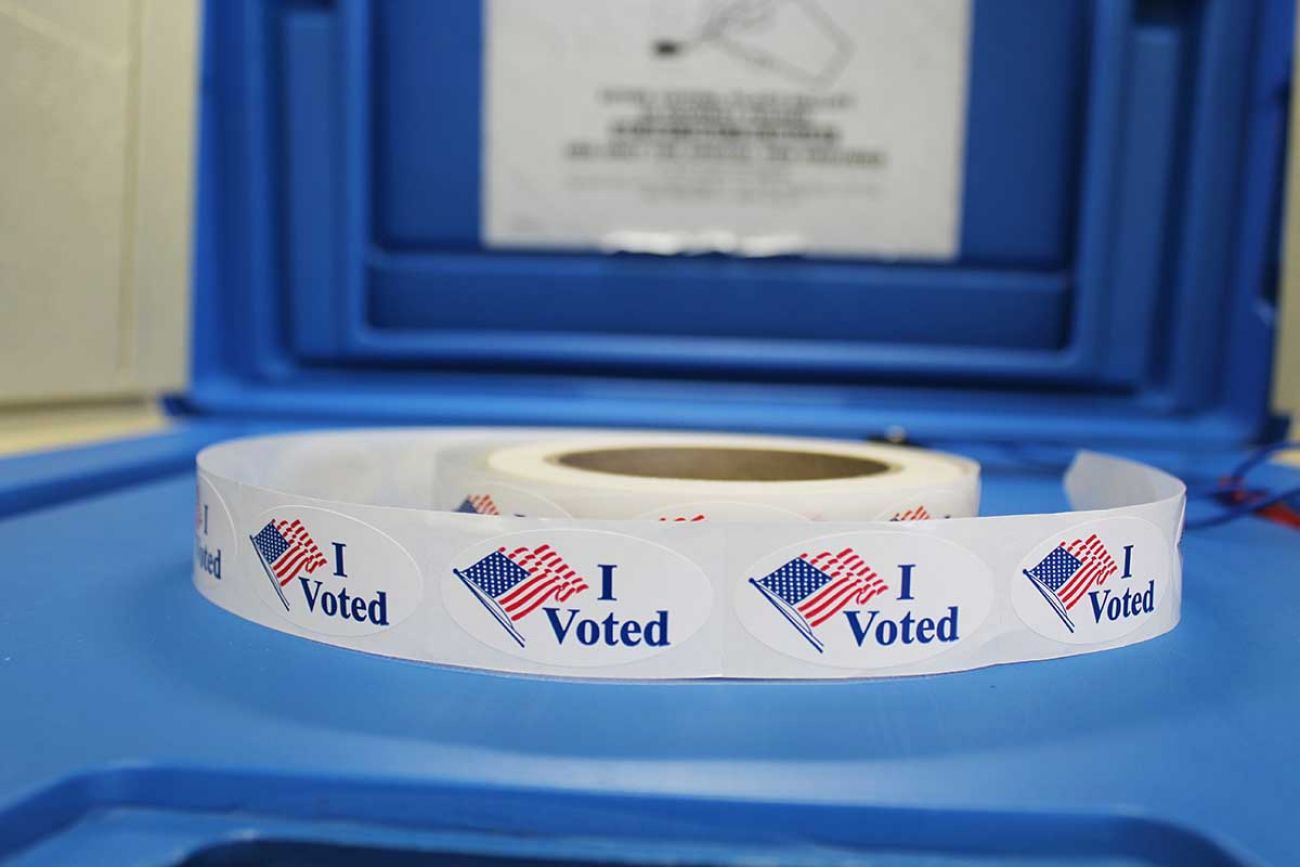Clerks: Michigan needs practical election reforms, not partisan posturing

LANSING — Michigan clerks are urging legislators to move beyond partisan posturing over the 2020 presidential election and focus on practical reforms ahead of midterm elections this fall.
Frontline election administrators need more money to cover costs associated with a surge in absentee voting, time to pre-process mail-in ballots and a "functional" structure to offer Michiganders early in-person voting, the clerks wrote Monday in an open letter to state lawmakers.
"There is no doubt that Americans are divided over the past election; but improvements that lead to better run elections have the power to lessen the tensions of mistrust and unite us in a common goal of accessible and secure elections," read the letter from leaders of municipal and county associations representing hundreds of local clerks.
"Our voters deserve a good faith effort by state leaders to make that happen."
Related:
- Bipartisan group seeks to revamp term limits, demand financial disclosure
- Democrats fear redistricting could kill Black representation in Detroit
- 2022 Michigan petition drives tracker: What to know about election proposals
- Who are the Republicans running against Michigan Gov. Gretchen Whitmer?
The Michigan Association of Municipal Clerks and the Michigan Association of County Clerks began advocating for a series of specific election reforms more than a year ago but has seen little progress in Lansing.
Many of the proposals aim to improve absentee ballot voting, an option that has been guaranteed in the state constitution since 2018 and exploded during the COVID-19 pandemic.
Roughly 1.6 million out of 2.3 million Michigan voters cast absentee ballots in the 2020 presidential primary. That was a record until the general election, when 3.3 million voters cast absentee ballots, 59 percent of all 5.6 million voters.
The previous high was 1.3 million in 2016, when about 27 percent of the state’s 4.9 million voters used an absentee ballot.
Clerks saw the surge coming in 2020 and asked lawmakers to give them more time to begin processing absentee ballots, a time-consuming process that requires human staff to handle each ballot, checking signatures and opening an outer envelope that contains a separate secrecy sleeve.
Michigan lawmakers allowed one day of early processing, but clerks say far more time is needed to avoid predicted reporting delays in 2020 that fueled conspiracy theories that the election was rigged against former President Donald Trump.
Senate Majority Leader Mike Shirkey, R-Clarklake, has acknowledged that his own reluctance to give clerks more pre-processing time contributed to a delay that allowed false claims about the presidential contest to fester.
"I own this," Shirkey told The Detroit News in early 2021, suggesting Michigan should look to Florida, where local clerks are able to pre-process absentee ballots weeks before Election Day. "I am not shying away from it."
And yet more than a year later, Michigan's Republican-led Legislature has yet to advance any legislation that would give clerks more time to count ballots and avoid reporting delays.
Rep. Ann Bollin, a Brighton Township Republican who chairs the House Elections Committee, told Bridge Michigan on Tuesday she is open to discussing a possible extension of the absentee ballot pre-processing window, including whether additional state funding would be required.
But "it's one of those things that's probably going to be a little controversial and take a little more thought," she said. "Hopefully, we can have a meeting of the minds and get something over the finish line."
Despite recent partisan feuds over election bills, Bollin — a former election clerk — said she believes there are other "broadly supported" ideas to improve elections that she wants to explore in her committee this spring.
Legislative Republicans have approved several election reforms this cycle, but most of the bills have been vetoed by Democratic Gov. Gretchen Whitmer, including strict voter ID legislation that is now part of a separate petition drive backed by the Michigan GOP.
Republicans argue Whitmer has been too liberal with her veto pen by rejecting other bills that had received at least some bipartisan support in Lansing.
The governor rejected poll challenger training legislation, for instance, chiding lawmakers for not including funding for an idea she said was otherwise "worth consideration." Whitmer also rejected a bill to expand allowable polling place locations, arguing it would have actually made it harder for seniors and people living in large apartment complexes to vote.
"If we're goin to work together, we need to do just that," Senate Elections Committee Chair Ruth Johnson, R-Holly, told Bridge Michigan.
Johnson, a former Secretary of State, said she and other lawmakers are "looking at" at least continuing the 2020 law she sponsored that gave clerks one early day to begin processing — but not counting — absentee ballots.
"It seems like it can be done successfully, but we do need to work with the governor on making sure that we have the integrity that we need," Johnson said, calling Whitmer "difficult to work with" on reforms.
The Republican package to tighten voter ID laws, approved by the Legislature and now part of the Secure MI Vote petition drive, would also prohibit clerks from accepting any private funding for election administration.
The proposed ban is a response to "COVID-19 grants" that were distributed to local clerks in 2020 by a nonprofit funded by Facebook CEO Mark Zuckerberg.
More than 450 Michigan clerks — including both Republicans and Democrats — received grants to pay for things like absentee ballot drop boxes, security cameras, voting reminder postcards and extra workers.
But GOP legislators who want to bar outside funding in future elections say there must be safeguards to ensure private groups do not attach conditions or direct funding in a way that could influence election outcomes.
Clerks have their own solution: The state should cover more local election costs so administrators don't need any outside assistance, association leaders wrote in their open letter to lawmakers.
The rise in absentee ballot voting has increased mail and staff costs, which are typically paid for exclusively by local communities, Delta Township Clerk Mary Clark, head of the municipal clerks association, told Bridge Michigan.
"In my office, we have mandatory overtime, from the time ballots go out until after Election Day" because clerks receive absentee mailings every day, she said. "We're happy to do it, but it costs money, and if you're not going to let us apply for grants, then fund it."
Clark did not have an exact figure for how much funding she thinks clerks need.
But she suggested lawmakers could base allocations on the reimbursement costs from presidential primaries, which the state is already required to fund.
Other potential reforms backed by local clerks:
- Create a "functional structure" to offer early voting as an option for Michigan voters, perhaps by allowing local communities to create shared early voting sites
- Set new standards for training and "reasonable access" for election challengers
- Increase transparency by requiring post-election audits to be public
- Move primary elections from August to June, giving clerks more time to audit and certify results. Lawmakers have already discussed this possibility for future elections, but it’s likely too late for 2022.
- Give clerks more tools to quickly remove dead voters or voters who moved out of state from the qualified voter file
Local clerks face increased "pressure" to administer secure, accurate, transparent and fair elections, but "without the support of state leaders, we cannot fully achieve our objective," they said in their letter to lawmakers.
Michigan Secretary of State Jocelyn Benson, a Democrat, has strenuously opposed GOP election reforms proposed in the wake of the 2020 election.
But she praised the bipartisan clerks groups in a statement, saying she is "so proud" of them for "taking a stand, demanding investment in our elections, and calling for fact-based, data-driven policymaking.”
"It’s time for Michigan's legislative leaders to stop acting on misinformation, listen to the experts, and strengthen our elections," Benson said in a statement.
See what new members are saying about why they donated to Bridge Michigan:
- “In order for this information to be accurate and unbiased it must be underwritten by its readers, not by special interests.” - Larry S.
- “Not many other media sources report on the topics Bridge does.” - Susan B.
- “Your journalism is outstanding and rare these days.” - Mark S.
If you want to ensure the future of nonpartisan, nonprofit Michigan journalism, please become a member today. You, too, will be asked why you donated and maybe we'll feature your quote next time!




